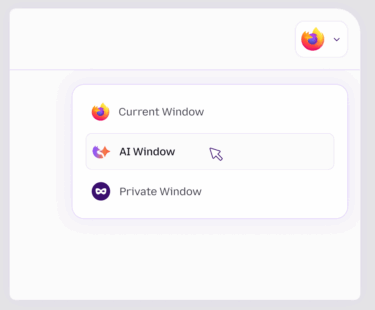Firefox is testing a new feature called "AI Window," giving users a dedicated space in the browser to interact with an AI assistant when they want it. Mozilla frames the tool as a controlled chat panel that can support browsing tasks without reshaping how people use the browser. The company says users decide if, when, and how the feature appears, and they can disable it at any time.

Mozilla positions this approach as a contrast to browsers like OpenAI's Atlas, where AI is either always present or completely absent, or, in Mozilla's view, nudges users into open-ended chat sessions. With AI Window, Firefox aims to maintain its identity as a fast, private, and independent browser, treating AI as an optional layer built around transparency and user control. Those interested can join Mozilla's waiting list. All AI browsers released so far have already faced significant security issues.




